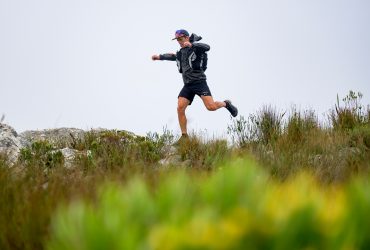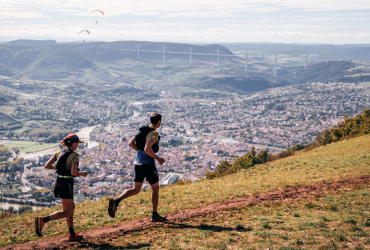Considered today as one of the best female runners on the planet, Mira Rai has a unique background. A child soldier during the civil war, the Nepalese discovered trail running by chance. A discipline that changed the story of her life.
June 2015, on the 80 km Mont Blanc race. The field is strong on this reference event in the world of trail running but it is an almost unknown name that emerges in first place of the women's race after 12:32 of effort. Mira Rai is 26 years old, she is Nepalese and is running the first major race of her career in Europe, the most competitive continent in the discipline. With a 22 minute lead over her closest pursuer, Mira Rai strikes a blow in the world of high level racing and comes back from a very long way, she who held a gun in her arms 12 years earlier.
Born in 1988 in Bhojpar, Nepal, into a family quickly marked by civil war (1996 - 2006), Mira was confronted with poverty and decided at the age of 15 to join the Communist Party insurgents as a child soldier. Far from wanting to defend a cause, the young girl hoped above all to help her family support itself during the Nepalese civil war. "The Maoist rebels came through my village," she explains in a Red Bull documentary about her (see below). "To recruit us into their ranks, they promised us two meals a day. So I decided to leave my village to join them as a child soldier." A security guard in the army, Mira has never been in contact with the front line. But it was there that she discovered her passion for sport. "Every morning I'd go for a run, followed by exercises and training sessions with the army. I trained for the high jump, the long jump, running and even karate."
Once peace was signed in 2006, Mira returned to her village, two years after leaving it. Still a minor for a few months, she was unable to join the Nepalese army. It was only eight years later that she finally decided to leave her native village for Kathmandu, the Nepalese capital. "I wanted a life beyond what the village offered. I had experienced different values during my years in the army. I wanted to have the life of a free and strong Nepalese woman."
In the capital, her lucky day came when soldiers saw her running in the Shivapuri Nagarjun National Park and noticed her facility for exercise. "When they invited me to join them the following weekend, I knew I had to be there." A week later, Mira took part in the first race of her life, a 50 km race in which she was the only woman at the start. Despite suffering from malnutrition at the 40 km mark, she finished the race and discovered the pleasure of long-distance running. She was spotted that day by event organizer Richard Bull, who decided to help her train harder.
The young woman began to perform in local races and took part in her first event in Europe in 2014 on the 57 km Sella Ronda. She won and followed up 15 days later with another victory on the Ultra Trail Degli Eroi (87 km). Her destiny is on the move. In 2015, she won the 80 km of Mont-Blanc and left the old continent with a prize money of 1,000 euros, "enough to support someone for a year in Nepal", says Martina Valmassoi, community manager at Salomon, the brand that dedicated a documentary to Mira Rai (see below).
Now sponsored by Salomon, Mira Rai is still based in Kathmandu and returns to her home village two or three times a year. A role model for Nepalese women, she founded the Mira Rai Initiative which helps young female runners in her country. "The fact that I was born in a remote village, was a Maoist fighter and discovered the city late in life pushed me to do it," she explains. "I want them to have a good grounding. That they can take part in English classes, that they have access to higher education, that they benefit from good training conditions and that they have psychological support. Every year, we welcome five new runners. And we already have two groups of girls in the Mira Rai Initiative." Girls who will be lucky enough never to hold a gun in their hands.










